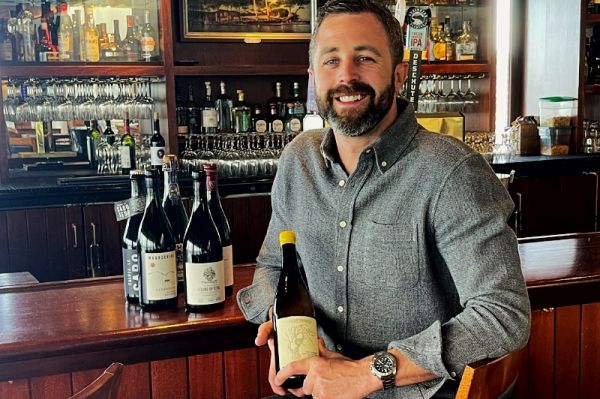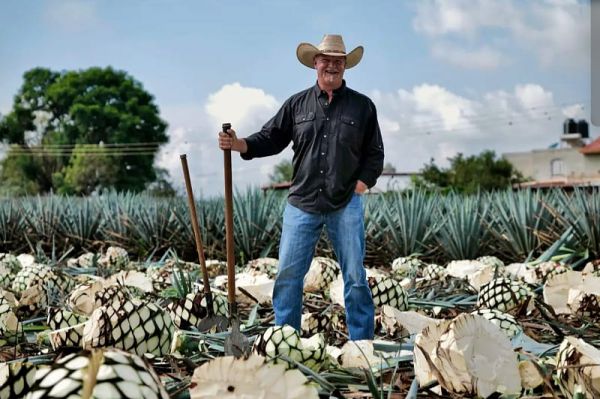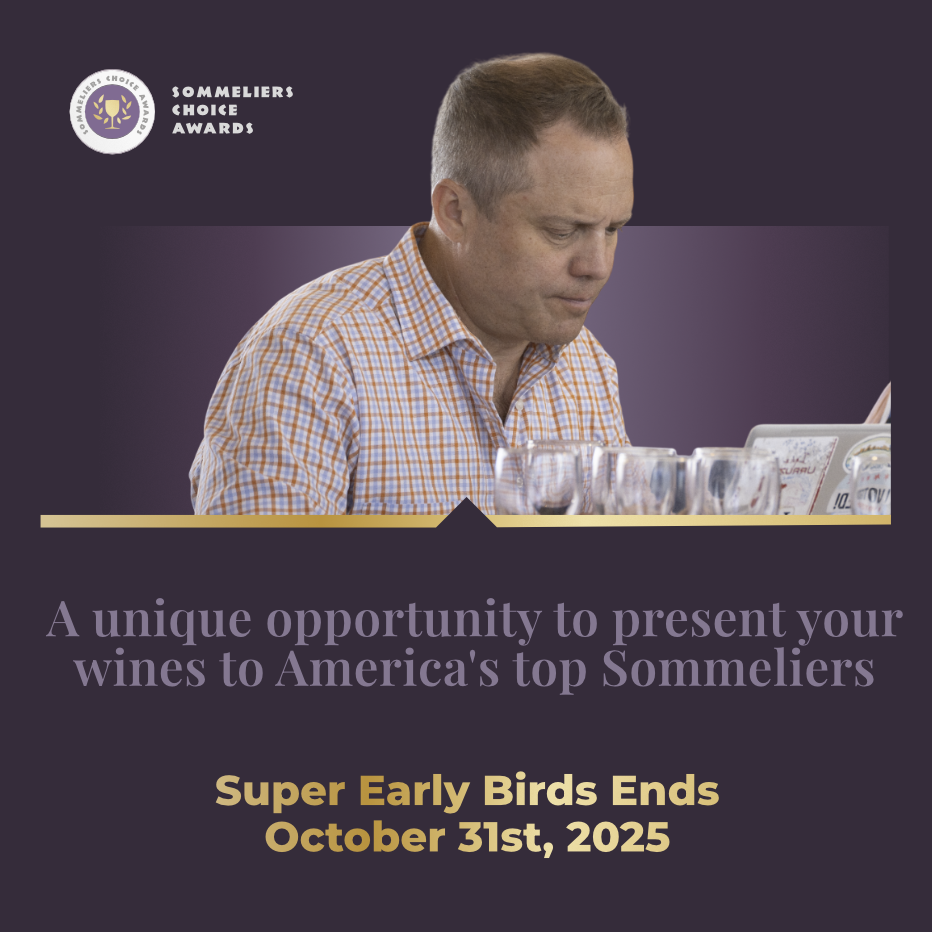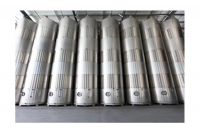Log in to your account
Lost password?Sales and Marketing
Consume Wine - But, in Moderation
The message of consuming wine in moderation is a fundamental one and closely associated with the wine industry, and one organization is doing the tireless work of promoting this message throughout the world.
06/11/2017
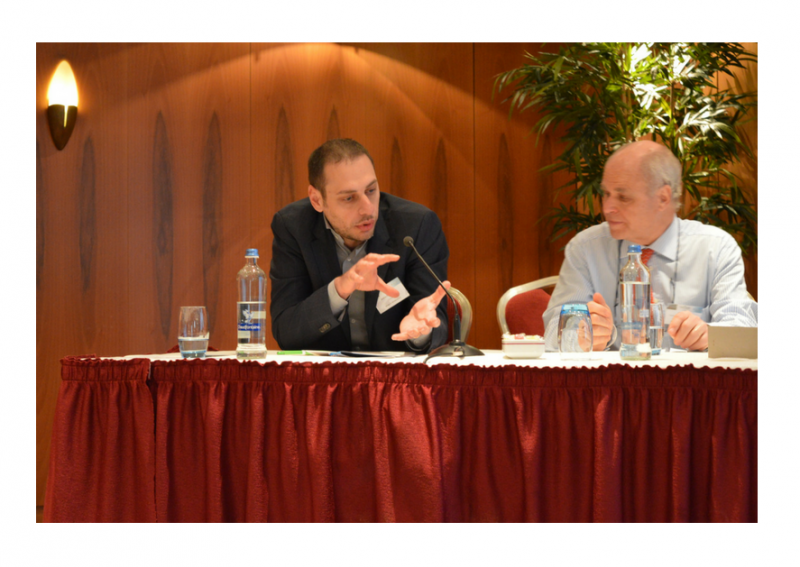
 The message of consuming wine in moderation is a fundamental one and closely associated with the wine industry, and one organization is doing the tireless work of promoting this message throughout the world. So, Bevroute sat down with Stylianos Filopoulos, Director, Wine in Moderation to understand how they carry out this program throughout the world.
The message of consuming wine in moderation is a fundamental one and closely associated with the wine industry, and one organization is doing the tireless work of promoting this message throughout the world. So, Bevroute sat down with Stylianos Filopoulos, Director, Wine in Moderation to understand how they carry out this program throughout the world.
1. What are some ways that wine importers and distributors can carry out the message for consumers to enjoy wine in moderation?
Everyone in the value chain has a role to play for a sustainable wine culture that inspires well-being and healthy lifestyles and Wine in Moderation welcomes everyone that shares this vision founded on our sound values and principles.
By joining the movement and becoming a WiM supporter, a wine importer or distributor will be authorized the use of the WIM logo (protected trademark) and will be able to develop actions under the programme together with other key actors around the world. There are several ways in which distributors can carry out the message for consumers to enjoy Wine in Moderation:
(1) First of all, by bearing the Wine in Moderation logo in all their communication, the importers and distributors show their commitment to the CSR programme and become promoters of the social responsibility and sustainability in their countries.
(2) The use of the Wine in Moderation logo on the labels of wine products creates a link for the consumer to the www.wineinmoderation.com with comprehensive science-based information about wine, health, and diet (incl. calories), which are currently available in 11 languages.

(3) Training programmes are available in a number of countries to help the professionals raise their knowledge and competencies about wine, health and responsible business practices.
(4) A variety of online and offline material is at the disposal of the WiM Supporters that join the programme in their country. They can present the various material in their point of sales and put it at the disposal of their customers.
The Wine in Moderation National Coordinator in each country with its guidance, tools, and tips will further help a WiM Supporter to properly adapt and effectively carry out the message to their specific target groups.
2. Since 2011, the Wine in Moderation Programme has reached more than 26 countries worldwide. How is WiM able to achieve this?
A lot of work has been put into the development of the Wine in Moderation programme since its creation in 2008. When it was launched, it was a big step for the wine sector. For the first time, all relevant actors within the European wine industry had come together to develop a comprehensive programme to promote responsibility and moderation in wine consumption.
This programme was wisely designed to be easily adapted and implemented to local needs respecting cultural diversity and regional identities. The Wine in Moderation programme is coordinated by national wine associations and is implemented with the cooperation and support of thousands of local wine actors among which the WiM Ambassadors (leading wine companies) and direct members of the WiM Association who set the example and support action at national and international level.
It is thanks to the hard work, commitment, and trust of our members, that Wine in Moderation has spread throughout the world and that such a wide variety of actions are being developed.
3. What are some of the reasons why some of the other countries are not participating in the programme?
Wine is not just an alcoholic beverage but a cultural product and the drinking cultures vary significantly from country to country, effective also the market structure and approaches. We are delighted to see that the majority of wine producing countries have joined the programme, but we are even more delighted that wine importing countries like the Netherlands and Sweden have also joined and are actively participating. We are continuously meeting with actors of the wine value chain to present and explain the programme, its missions and its vision for a sustainable wine culture. We are also currently speaking with a number of actors/associations that have not joined the programme yet and that will, we hope, join the movement before the end of the year.
We believe that social responsibility actions are complementary and serve a common objective. Through Wine in Moderation, we would like to provide a common reference to make them visible and help them grow.
4. The 2016 implementation report mentions many organizations that are associated with the program. Pernod Ricard and Moet Hennessey are ambassador companies. How are other wine producers taking up the cause?
Leading wine companies such as Pernod Ricard, Moet Hennessy, and Sogrape Vinhos, also known as our Ambassador companies support the efforts made at the international and national level setting the example with their leadership in social responsibility and high contributions.
We are proud of our Ambassador Companies as we are for the thousand wine companies that have already joined the programme in their countries, developing actions carrying the wine in moderation logo. Our efforts and interest are to actively engage and enable action from as many wine producers as possible.
The message of wine in moderation is actually how the wine was communicated for thousands of years and is well understood by the sector. Wine Producers are proud of their wines made with a lot of effort, love, and art and no one would like to see their products being abused or that damage lives.
5. Wine in Moderation goes hand-in-hand with safe alcohol consumption as a whole. In this effort, do you also work with traffic authorities in various countries to deliver the message of moderation?
The National Coordinators are responsible for planning, implementing, coordinating and reporting the Wine in Moderation programme in their respective areas in their country. They are therefore responsible for developing actions at the national level in the field they deem necessary. In countries such as the Netherlands or Portugal, national associations do work hand in hand with the authorities to develop common campaigns and actions to inform about issues related to drink-driving. In Italy and Germany as well, the respective coordinators are working together with the police to promote a ‘Don’t Drink and Drive’ policy.
6. What have been some of the most difficult objections (culturally / politically / financially) to overcome for WiM to promote the message?
Each country is different and for such a programme like Wine in Moderation you need to listen, understand and adapt to the local needs and you need to be credible and accountable for your actions. Relevance and trust are components to overcome objections.
7. What are some ways in which countries and organizations can practice self-regulation?
One of the pillars of the programme is self-regulation in commercial communication. When the programme was created the European wine sector established the Wine Communication Standards to strengthen and intensify responsible wine advertising and to shape commercial communications for wine products in a way that guides the consumers towards moderate and responsible consumption patterns and away from harmful consumption.
A good national implementation of this code is this in Spain. The application of the code is mandatory for all FEV company members, as well as for companies and entities who wish to follow them. All companies that undersign the WCS adhere to the values and principles of the standards and bear the Wine in Moderation logo and message in all of their commercial communications. The verification and external control to guarantee the agreed measures has been entrusted to "AUTOCONTROL de la Publicidad", the national organization in Spain in charge of self-regulation in advertising.
But it is not only about commercial communication, all wine Communicators are in a privileged position to contribute to a sustainable wine culture and the long-term well-being of wine consumers and society. All those communicating about wine, can adhere to some basic principles and encourage consumption patterns of wine which are moderate and responsible, finding ways to promote respect and understanding of wine, not as an alcoholic beverage, but as part of our shared culture.
8. How do you make sure that the program is effective and that it is carried through from the top level to the bottom?
In each country, there is a national coordinator. In the beginning of the year, an action is planned for example, vocational trainings or campaings through TV, sports or various mediums that are found effective in that country or region. The coordinator reports data back to the organization regularly with statistics for each program planned. There is monitoring of the performance annually and this data is reported back to the European Commission.
9. What are some of the evaluation criteria used to measure the effectiveness of the program?
Please refer to the implementation reports that explain the KPIs for the program: https://www.wineinmoderation.eu/files/Implementation_Reports/WiM_Report-2014-2016-web.pdf.
We are also continually researching wine health and studying how it is correlated with cardiovascular diseases, dementia, cancer and liver disease. We work together with our Scientific advisory board who keep us up to date on the latest research result and trends and add to the credibility to the program.
10. How does this program affect national and international alcohol trade?
When we talk about the Wine in Moderation program, there are participants who Walk the Talk. and promote responsible alcohol consumption. We are proud to have companies like Pernod Ricard and Moet Hennessy carry the WIM logo on their labels and their website.
This program is not about the total volume o consumption, the purpose is to promote responsible drinking patterns. The same quality of wine can be excessive if consumed in one occasion rather than moderately with meals throughout the weeks.
Companies should take the first step to demonstrate the social responsibility. As sellers and servers, they should inform consumers of the abusive consumption of alcohol.
We believe that the fragmented wine industry can come together to the Wine in Moderation program.
The message of consuming wine in moderation is a fundamental one and closely associated with the wine industry, and one organization is doing the tireless work of promoting this message throughout the world. So, Bevroute sat down with Stylianos Filopoulos, Director, Wine in Moderation to understand how they carry out this program throughout the world.
1. What are some ways that wine importers and distributors can carry out the message for consumers to enjoy wine in moderation?
Everyone in the value chain has a role to play for a sustainable wine culture that inspires well-being and healthy lifestyles and Wine in Moderation welcomes everyone that shares this vision founded on our sound values and principles.
By joining the movement and becoming a WiM supporter, a wine importer or distributor will be authorized the use of the WIM logo (protected trademark) and will be able to develop actions under the programme together with other key actors around the world.







